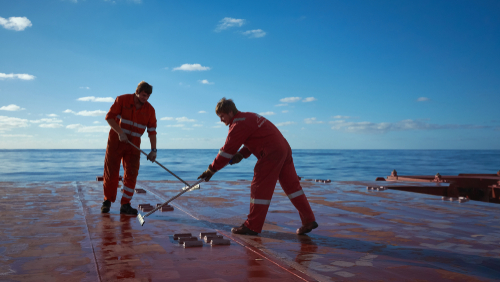In a statement submitted to the Special Tripartite Committee (STC) meeting held last week, SRI, the international pan-industry body researching maritime and seafarers’ law, called for more States to ratify the Maritime Labour Convention (MLC) to ensure a level playing field in the shipping industry.
At the meeting, Deirdre Fitzpatrick, Executive Director of SRI said:
More ratifications are needed to bring the Convention on a par with SOLAS, MARPOL and the STCW, the other three pillars of international shipping
It added that “while it is heartening to see that the MLC is now ratified by 101 States covering more than 96 per cent of the world’s gross shipping tonnage, these other conventions are each ratified by more than 155 States and cover over 99 per cent of the gross tonnage of the world fleet.”
Without more ratifications, and despite the principle of no more favourable treatment, there will continue to be ports and regions around the world where ships may sail free of the MLC
Ms Fitzpatrick also addressed the failings of the MLC during the COVID pandemic, when, more than ever, the industry saw seafarers’ lives at risk and their rights being violated.
In our statement to the STC last year, we referred to the calls to give seafarers key worker status. The IMO continues to call on its members to designate seafarers as key workers and we believe that this issue should be discussed at a future meeting of this Committee
She also added that this Committee could bring its expert thinking on the issue of the fair treatment of seafarers following maritime casualties and accidents.
[smlsubform prepend=”GET THE SAFETY4SEA IN YOUR INBOX!” showname=false emailtxt=”” emailholder=”Enter your email address” showsubmit=true submittxt=”Submit” jsthanks=false thankyou=”Thank you for subscribing to our mailing list”]
Lastly, Ms Fitzpatrick welcomed the recent ratifications of the MLC by Mozambique, Sierra Leone, Oman and San Marino, and remarked that the overall number of proposed amendments for the session, as well as the successful adoption of eight amendments and three resolutions, “showed that the MLC continues to be a vital and living instrument, seeking to keep pace with the changes in the industry.”
Recently, seafarers’ groups have won the right to mandatory social connectivity for crews, including internet access, in updates to the Maritime Labour Convention 2006 (MLC). However, ITF expresses its disappointment that shipowners and governments may seek to charge for it.
More specifically, the latest Special Tripartite Committee (STC) meeting ended in Geneva on 13 May, with agreement on a number of changes including a commitment to better social connectivity for seafarers.
Commenting on the decision, Mark Dickinson, vice chair of the International Transport Workers’ Federation’s (ITF) Seafarers’ Section, said that “being able to keep in touch with family and friends isn’t just a nice-to-have, it’s a basic human right. That’s why we fought so hard for seafarers to be given internet access and to have a mandatory provision in the MLC.”
However, ITF noted that despite the fact that ships already have the technology to provide internet access, “shipowners dug their heels in over the change.” As the organization said, ITF claims that shipowners insisted that they should be able to limit access and be able to charge seafarers for internet connectivity.

































































